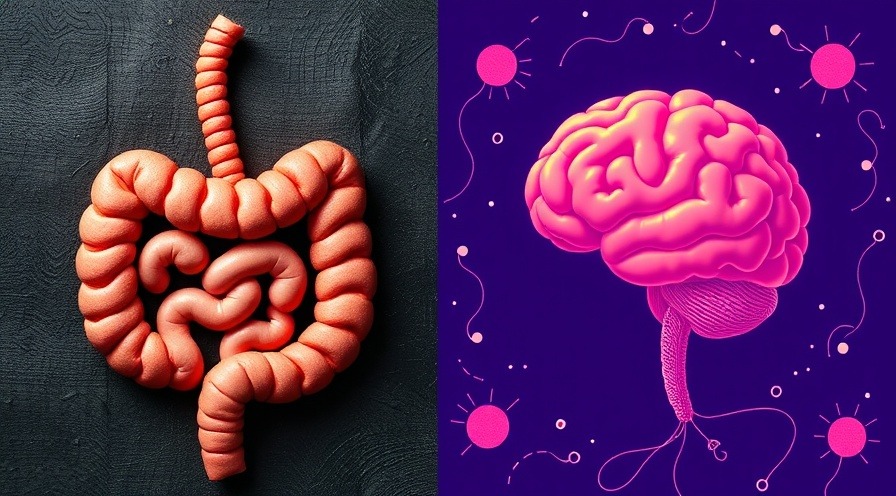
Poo for Zzz: How Your Gut’s Microbiome Influences Your Sleep
You’ve probably heard that counting sheep can help you drift off—but did you know that what’s happening in your gut plays an equally big role? Emerging research shows that the trillions of microbes living in your digestive system help regulate your nightly rest, and vice versa. In other words, your “poop personality” can make or break your pillow performance.
The Gut–Brain–Sleep Axis
Your gut and brain communicate constantly via neural, hormonal, and immune pathways—collectively called the brain–gut–microbiome axis (BGMA). When this conversation flows smoothly, you sleep soundly and wake refreshed. Disruptions in gut microbial diversity can interfere with production of sleep‑regulating chemicals like serotonin and melatonin, leading to restless nights and daytime fatigue (PMC).
Key Studies and Expert Insights
Night‑to‑night variability & microbial diversity: A study in the Journal of Sleep Research found that people whose sleep duration fluctuated most from night to night had lower gut microbiome diversity than those with consistent sleep patterns (Oxford Academic).
Microbial metabolites & sleep quality: A 2024 Frontiers in Microbiology analysis reported that higher abundance of short‑chain fatty acid–producing bacteria (like Faecalibacterium) correlated with deeper, more restorative sleep stages (Frontiers).
Dr. Emeran Mayer, world‑renowned gastroenterologist and neuroscientist, stresses:
“The last step to a healthy gut and better brain is to get eight hours of undisturbed, regenerative sleep.” (PBS)

How Poor Sleep Hurts Your Gut
Chronic sleep deprivation isn’t just groggy mornings—it also alters microbiome composition in as little as 48 hours. Some studies show that lack of sleep reduces beneficial bacteria, increases inflammatory species, and weakens gut‑barrier function, leading to bloating, discomfort, and even mood swings (PMC).
Optimizing Your Microbiome for Sweet Dreams
-
Embrace Fermented Foods
Yogurt, kefir, kimchi, and sauerkraut are rich in live probiotics.
“Probiotics found in fermented foods may promote better sleep by helping individuals fall asleep quicker, stay asleep longer, and achieve deeper sleep,” note Akanksha Singh and Dr. Pradeep Sing Negi of the Central Food Technological Research Institute (Food & Wine).
-
Prioritize Fiber & Prebiotics
Foods like garlic, onions, leeks, and bananas feed good bugs.
A high‑fiber diet supports production of sleep‑promoting short‑chain fatty acids.
-
Time Your Meals
Finish eating at least 2–3 hours before bedtime to align gut activity with your circadian rhythm (New York Post).
-
Maintain a Consistent Sleep Schedule
Regular bed and wake times reinforce both your brain’s clock and microbial cycles, which often follow nightly rhythms themselves (ScienceDirect).
-
Manage Stress
Chronic stress disrupts both sleep and gut health. Techniques such as deep breathing, meditation, or gentle yoga can calm the BGMA and pave the way for restorative rest.
Practical Tips for Better Gut‑Sleep Harmony
Limit Late‑Night Snacks: Eating close to bedtime spikes blood sugar and disrupts both microbes and melatonin release.
Stay Hydrated (Earlier in the Day): Adequate water supports digestion, but avoid large amounts right before sleep to prevent nighttime wakings.
Consider a Targeted Probiotic: Look for multi‑strain supplements backed by human studies focusing on sleep or mood benefits.
Conclusion
Your gut microbiome and sleep quality are entangled in a two-way dance. By nurturing your digestive buddies with fiber, fermented foods, stress management, and consistent sleep habits, you’re not just improving gut health—you’re setting yourself up for sweeter dreams and brighter mornings.
Disclaimer: The information provided on this website is for general informational purposes only and should not be considered medical advice, diagnosis, or treatment. Always consult a qualified healthcare professional before making any decisions or taking actions related to your health, including but not limited to medical conditions, treatments, diets, supplements, or exercise programs. The content on this site is not intended to replace professional medical guidance. The website and its authors are not responsible for any actions taken based on the information provided. Ask your doctor or licensed medical professional first.
 Add Row
Add Row  Add
Add 




Write A Comment